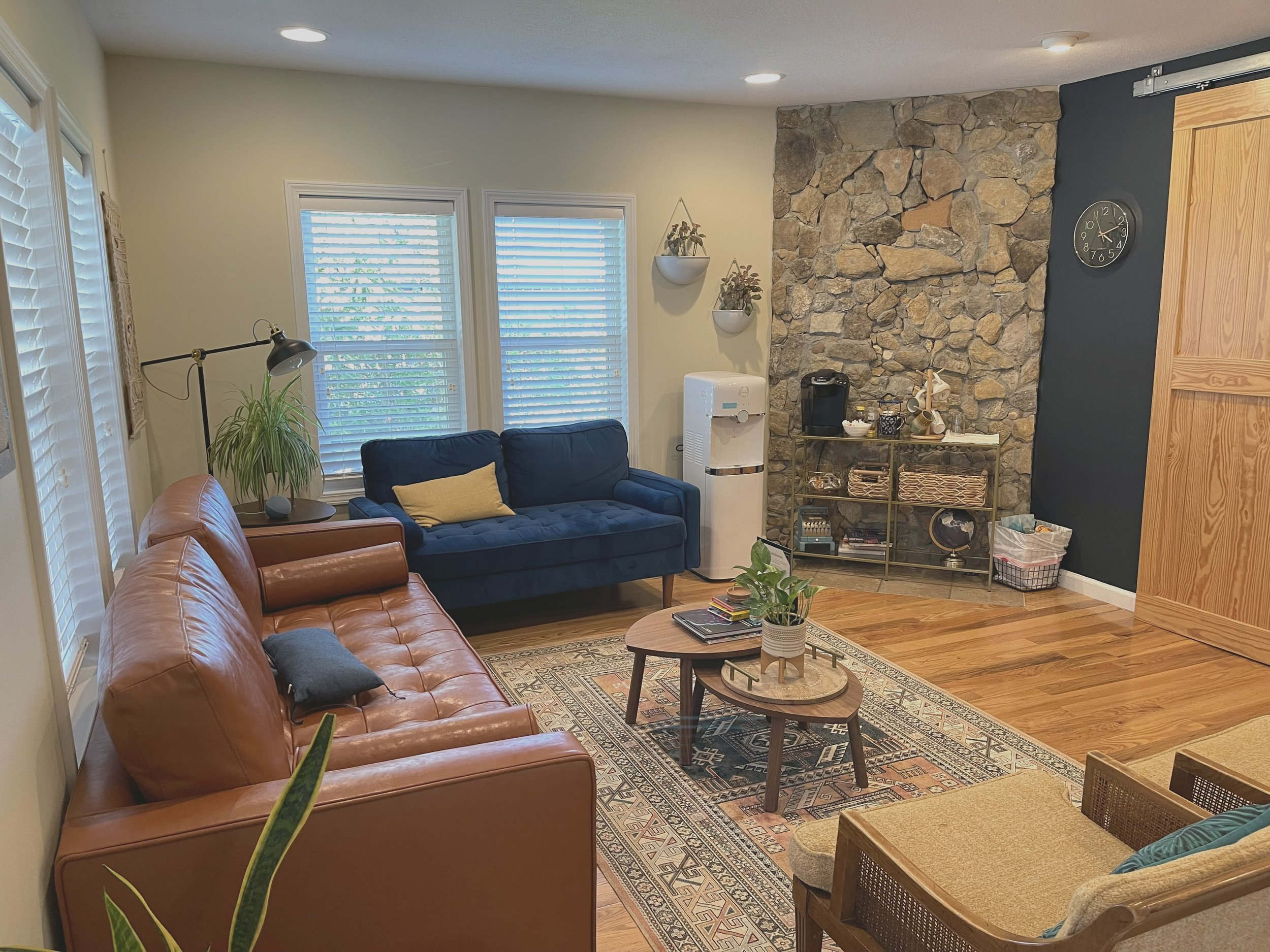
Equine Therapy
At Your Next Chapter Counseling, we hope to provide you with a variety of treatment modalities and options that fit your needs and interests for your therapy experience. We are excited to add Equine Therapy as an option for those who would like a unique and powerful experiential approach to therapy.
Equine therapy is an experiential approach to therapy sessions that take place in the presence of horses. Working with horses in the context of therapy is useful for two main reasons. First, the brain of a horse closely resembles a human brain that has experienced trauma. Horses are prey animals, so they are consistently aware of their surroundings and may shift quickly into “fight or flight” mode when they sense danger (or perceived danger). Those of us who have experienced trauma may have a shared experience, where we deal with consistent worry or hypervigilance, or generally feel “on edge.” Second, horses are incredibly sensitive, not only to our actions but also to our emotional state or “energy.” By paying attention to how horses respond to us, we can learn about how we may be showing up in our human relationships. Horses are really good at showing us who we are and can provide us feedback as to how we might want to change something. Being in relationship with horses isn’t about changing the horses - it is all about bringing up different parts of ourselves. Equine therapy uncovers our greatness and shows us what we need.
Equine sessions are run by a therapist and an equine specialist. We have partnered with Terry Kozak at You Are Herd to offer this unique experience. In a typical equine session, we will ask you, “What do you want to do?” or “What do you want to work on?” You then get to choose the focus of the session and what you would like to do with the horse. For example, you might want to try and get a horse to approach you or walk next to you. Or you may simply want to have a session in the presence of horses to see how you feel and what you notice. Throughout the session, the equine specialist will provide you with observations or suggestions, and your therapist will be there to help support you with whatever emotions arise.
Equine Therapy
Sessions will be held at Terry Kozak’s farm in Weaverville, NC.
Frequently Asked Questions

